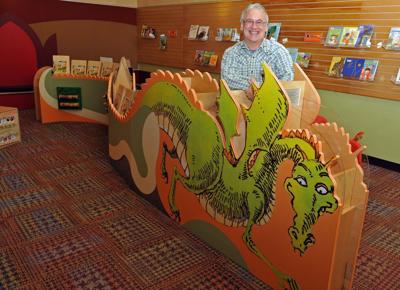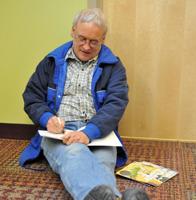Robert Munsch, the beloved Canadian childrenÔÇÖs author who has sold more than 82 million books worldwide, has been approved for medical assistance in dying (MAID) as he lives with dementia┬áand ParkinsonÔÇÖs disease.
Munsch, who lives in Guelph, Ont., ┬áhe doesnÔÇÖt want to linger like his brother, who died slowly from Lou GehrigÔÇÖs disease, also known as amyotrophic lateral sclerosis (ALS).┬á
ÔÇťThey kept him alive through all these interventions. I thought, ÔÇśLet him die,ÔÇÖÔÇŁ Munsch, 80, said. He thinks heÔÇÖll choose to go ÔÇťwhen I start having real trouble talking and communicating. Then IÔÇÖll know.ÔÇŁ
He said a date has not been set yet, but he has to choose while he can still actively consent.
Andrea Perrin, Munsch’s assistant, confirmed the report to the Star and said Munsch would not comment further.
In , Munsch’s daughter Julie clarified that her father is “not dying.”
She added that her father made his decision to pursue MAID five years ago: “My dad is doing well but of course with a degenerative disease it can begin to progress quickly at any point.”
MunschÔÇÖs work includes bestsellers like ÔÇťLove You Forever,ÔÇŁ ÔÇťThe Paper Bag PrincessÔÇŁ and ÔÇťMortimer.ÔÇŁ His books have been published in 31 territories and 45 languages, according to Scholastic Canada, and he received a star on CanadaÔÇÖs Walk of Fame in 2009. He is also a member of the Order of Canada.
ÔÇśThe Paper Bag Princess,ÔÇÖ Robert MunschÔÇÖs 1980 dragon tale, has been used as a springboard to
Munsch and his wife, Ann, told the New York Times he has been falling around the house. He no longer has the ability to come up with new stories. He has trouble finding words and forgets that friends have visited.
ÔÇťMost days,ÔÇŁ he said, ÔÇťI donÔÇÖt have the urge to go tell stories.ÔÇŁ
Munsch suffered a stroke in 2008 that left him unable to speak for two days, but he maintained his goal of publishing two books a year, one in the spring and one in the fall. In 2010, he said he had a history of cocaine and alcohol abuse.
Munsch revealed to the CBC in 2021 that he had dementia.
“I can’t drive, I can’t ride a bicycle, I can’t write,ÔÇŁ he told CBC then. ÔÇťSo it’s been really whittling away on who I thought I was. I kind of thought I would like to do this interview as a last hurrah.”
In a on Monday, Scholastic Canada said it joins readers in ÔÇťgratitude for this chance to connect with (Munsch) in a new way.ÔÇŁ
ÔÇťHis stories will live on for generations,ÔÇŁ the company said. ÔÇťWe love you forever.ÔÇŁ
With files from Kevin Jiang





























To join the conversation set a first and last name in your user profile.
Sign in or register for free to join the Conversation